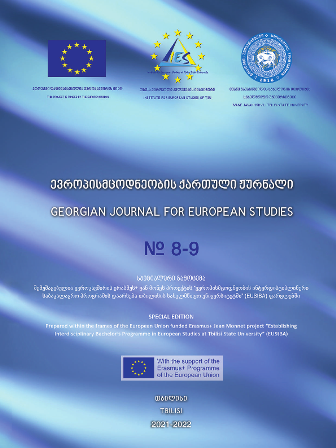ACCESS TO HIGHER EDUCATION AS A MEANS OF REHABILITATION FOR PRISONERS: THE CASE OF GEORGIA
Keywords:
access to higher education, rehabilitation, convicts, prisons, Georgia.Abstract
Higher education plays a vital role in the development of individuals and increases chances of employment. Proper attention needs to be paid to providing prisoners with the correct facilities to obtain higher education since they represent one of the most marginalized groups and their rehabilitation is of great importance to prevent recidivism, promote their full resocialization, and strengthen their employment opportunities. This study aims to explore the compatibility of the Georgian legislative framework regarding the prisoners’ right to higher education with the international standards as well as the current situation and challenges in Georgian prisons. Based on a combination of qualitative research, more specifically, case studies, and existing scholarship on the topic, as well as reports of the authoritative international and local public and/or third sector organizations, the study shows that access to higher education is an essential need for convicted persons in Georgia. Even though Georgia’s legislative framework regulates some aspects of ensuring access to higher education, its availability is restricted only to limited types of institutions. Moreover, there is a scarcity of prisoners engaged in higher educational programs, which indicates the deficiency of practical mechanisms. The study also reveals that the budget allocated by the state for the education of inmates compared to the overall funds envisaged for higher education is substantially meager, which is utterly insufficient to implement high-quality educational programs. The study provided legal research of the existing national legal framework from the perspective of existing international universal and regional standards and obligations, which was provided in the context of a theoretical framework aimed at outlining the importance of higher education in lockups.


